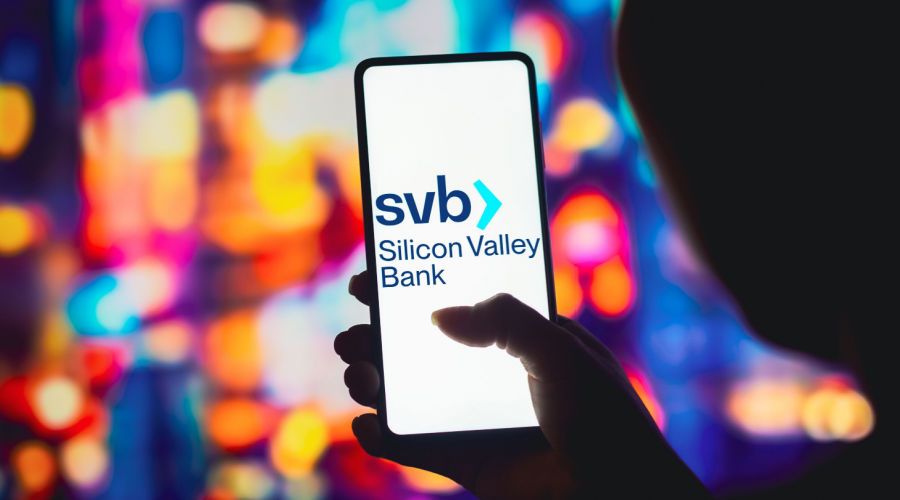How will the failure of SVB impact Mena's startup ecosystem?

The collapse of the Silicon Valley Bank (SVB), one of the world's biggest startup lenders has been nothing short of a disaster for the global startup sector. Not immune to the far-reaching implications of SVB's bankruptcy, the startup ecosystem in the Middle East and North Africa region (Mena) has also felt the shockwaves.
Over the years, SVB has become incredibly immersed in the startup sector; it is believed that it has incorporated more than half of global fundraisings; consequently, startups from the region have been set on a high alert in the aftermath of the crisis, with many still feeling cautious even after the US Federal Reserve’s pledged to protect the deposits, both insured and uninsured.
Multiple sources have confirmed to Wamda that any company that had its payroll processed by SVB will be severely affected. But, the range of the impact depends on the amount of cash tied up in SVB and whether or not these companies are able to raise or borrow money to sustain their operations. Adding to that, some startups reported difficulties pulling money out of the failed bank. Among the regional startups that are banked with SVB are Anghami, Careem, Holo and Kitopi.
"I believe that we would face a bigger problem than what we will be facing anyway because of the lack of funds. Companies would have gone bankrupt. This can bring down the confidence in the future in terms of how startups and investors might plan ahead. I think it's all clear that we are going into recession because everybody will be more cautious in the coming period," says Mehdi Mhmadi, co-founder of UAE-based Freelancy.
As uncertainty rebounds, a slowdown in the overall startup activity is expected to take place, prompting the rise of a new wave of consolidation in the market. Startups are not alone in feeling this impact, VCs have also been affected by the repercussions.
"The nature of early-stage investors like us is that our companies operate on a lean and fast growth trajectory. Every penny counts. The result is the collapse of many companies that do not have that safety cushion," says Issa Aghabi, founder of Access Bridge Ventures.
"Some funds also have their management fees parked there as well, further fuelling the negative ripple effect where we potentially would have needed to figure out a way to make ourselves whole to fund our day-to-day operations. This would have delayed funds allocated to startups, resulting in an overall poorer fund performance and much more," he adds.
No more putting all eggs in one basket
Once known as the go-to bank for startups across the globe, SVB also became the preferred choice for regional startups, including those at the very early stages of founding. In fact, to bank with SVB has long been touted as a requirement to fast-track the roll-out of a startup and therefore maximise its fundraising prospects.
“When setting up a bank account, as founders, we need to consider multiple factors, such as ease of onboarding and money access. There’s a reason why I create companies offshore, meaning that I have to choose a banking partner that accepts my startup being at the particular place. SVB accepts startups that are VC-backed while offering a lot of benefits. They move fast, and know and understand exactly what we need," says Mohamed Farag, co-founder and CEO of Subsbase.
For Farag, one palpable impact would be the lack of trust in the global banking infrastructure, which will force startups to link up with multiple banks from different locations to avoid similar threats in the future. Yet, this can come at the expense of the startup's overall financial health.
“There is no consensus about how impactful this is so far; we're still assessing the situation, how it's [going to] really impact us, and what actions we need to take in the short term. Thus, we're practically the ones looking at different things that are going to happen and monitoring the situation closely. And I think everyone else is doing that to…hedge their risk," he says.
“Now, you need to make sure you have multiple bank accounts and even multiple countries, then even countries can sometimes lose money and the costs of being incorporated in countries are an issue itself. I think we're going to look more for bigger banks, digital banks, particularly those that can be backed by the government. Yet, this ultimately adds a lot of complexity, a lot of overhead costs managing all that. This also applies to investors as well," adds Farag.
But for Aghabi, the SVB failure has highlighted the dire need for more startup-friendly banking processes across Mena, the lack of which has been a thorn in the side of the entire startup sector.
"Diversity of [bank accounts] now is a necessity, even with trusted institutions. This would come easy if we are in a more mature market but the banking system in this part of the world is challenging and not very conducive for funds and startups. It still takes a very long time to get an account running and when we do so, it comes with complexities that are in many situations unrealistic," Aghabi adds.
Risk management
In an increasingly tougher fundraising landscape, the SVB debacle has put the focus on affected startups to pivot towards profitable growth as a means to reduce reliance on external funds. Meanwhile, others will have to tighten their belt and be frugal with their spending to ride things out.
“The next period screams cash flow management because no matter how much credit you have exposed, it's going to take some time to resolve for you to get your money and for investors to support different portfolio companies,” says Sherif Aziz, co-founder of Subsbase. “I think we will see more lending than equity investments because [companies] are squeezed on cash and they need the money to survive."


